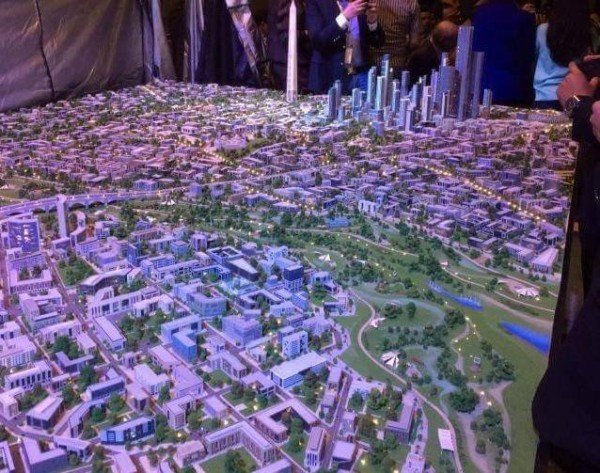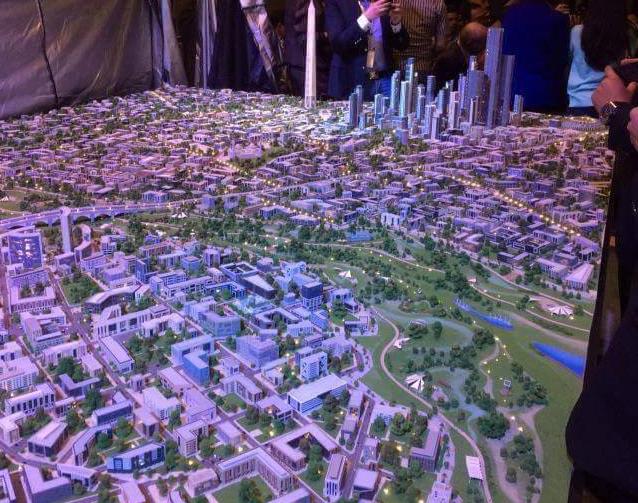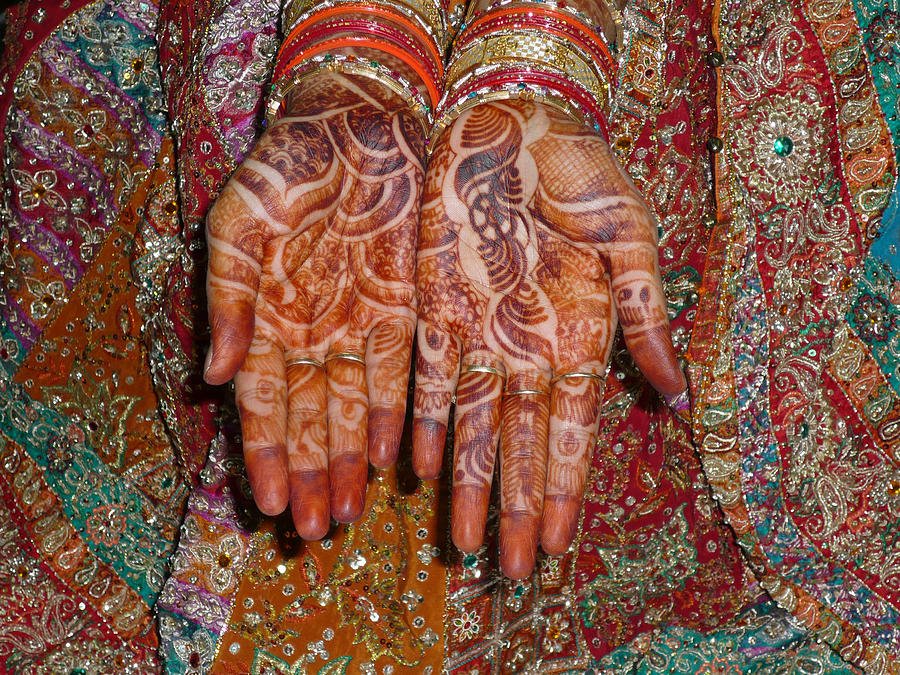The plans of Egypt’s new administrative and business capital have been revealed on a new website.
According to the website, the city on the outskirts of Cairo will house up to 5 million residents and be built in the corridor between current capital and the Red Sea.
There will be 1.1 million housing units and 1.75 million permanent jobs.
The city is set to be officially unveiled at an Egyptian government conference at the Red Sea resort of Sharm El-Sheikh, to global investors and politicians.
The website – unveiled on March 13 – says that “the masterplan is to create a global city with smart infrastructure for Egypt’s future, which will provide a multitude of economic opportunities and offer a distinct quality of life”.
It will be built over 270 sq miles – about the size of Singapore.
The website says the city’s site “is situated along the corridor between Cairo and the Red Sea, providing linkages to significant shipping routes. The city is bound to become a focal point of the Eastern Cairo region”.
The website links to Capital City Partners, a private real estate investment fund led by Emirati Mohamed Alabbar.
Dubai businessman Mohamed Alabbar built the world’s tallest building, the Burj Khalifa.
Egyptian government departments, ministries, and foreign embassies, will move to the new metropolis from out of Cairo, whose urban area is home to 18 million people.
The US Secretary of State, John Kerry, has praised recent economic reforms in Egypt, and urged businesses to invest in the country.
John Kerry was attending an international economic conference to discuss ways to revive the Egyptian economy.
Hundreds of businessmen and dignitaries from around the globe were at the meeting in Sharm El-Sheikh.
Dozens of major infrastructure projects have been unveiled, attracting billions of dollars’ worth of outside investment. Saudi Arabia, Kuwait and the United Arab Emirates have each pledged $4 billion of investments in Egypt,
It comes after years of political upheaval and severe, ongoing, tensions.
Foreign investment contracted after the 2011 uprising, from $13 billion in 2007-2008 to just $2.2 billion, and annual economic growth fell from 7% to about 2%.
The IMF now envisages 3.8% growth for the financial year to July 2015, and 4.3% in 2015-2016.
Foreign direct investment was $4 billion in the previous financial year, and Investment Minister Ashraf Salman says it be $8 billion in this financial year.
[youtube KS2uPLcv5mY 650]


